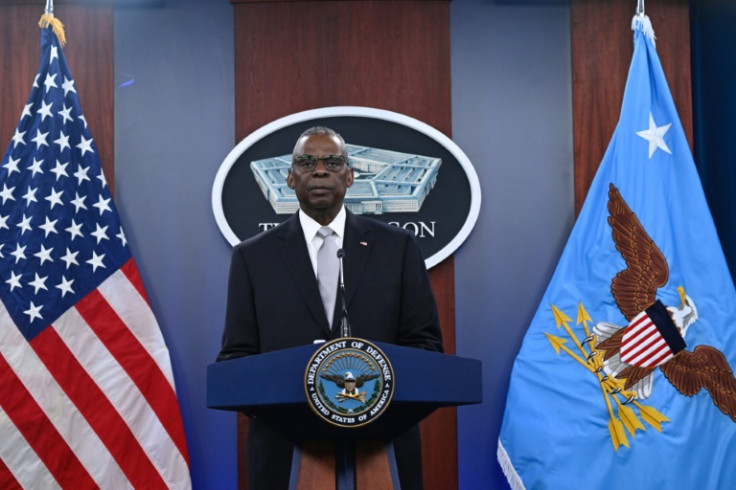
US Secretary of Defense Lloyd Austin apologized on Thursday for concealing his prostate cancer diagnosis and hospitalization from President Joe Biden, the rest of the government, and the American public.
Still in recovery, Austin continues to suffer from leg pain and said he used a golf cart for transportation inside the Pentagon ahead of the rare solo press conference.
The defense secretary has come under heavy political fire from Republicans over his undisclosed absence at a time when the United States faces a spiraling crisis in the Middle East.
Austin said he has not considered resigning and that Biden continues to back him. However, he repeatedly apologized, blaming his naturally "private" instincts following the shock of the diagnosis.
"I should have told the president about my cancer diagnosis," he told journalists. "I have apologized directly to President Biden."
The 70-year-old Austin was out of the public eye for weeks, beginning with minor surgery to treat prostate cancer on December 22 that saw him hospitalized until the following day.
He was readmitted due to complications including nausea and severe pain on January 1, but the White House was not informed until January 4, while Congress was not told until the following day, and Biden did not learn of the cancer diagnosis until January 9.
Austin said that he did not direct his "staff to conceal my hospitalization from anyone," but acknowledged: "We did not get this right."
The controversy over his health problems comes with American forces in Iraq and Syria facing near-daily attacks from Iran-backed militants -- one of which killed three soldiers over the weekend -- while Yemen's Huthi rebels have repeatedly targeted international shipping.
The top US defense official is also a key figure in attempts by the Biden administration to maintain support for Ukraine's fight against Russian invasion, with Republican members of Congress refusing to authorize new funding for military aid to Kyiv.
Austin -- a commanding presence at well over six feet tall -- is an intensely private person who eschews the spotlight, which he said played into his decision to keep the cancer diagnosis secret.
It "was a gut punch. And frankly, my first instinct was to keep it private. I don't think it's news that I'm a pretty private guy -- I never liked burdening others with my problems," Austin said.
But he admitted that "taking this kind of job means losing some of the privacy that most of us expect. The American people have a right to know if their leaders are facing health challenges that might affect their ability to perform their duties, even temporarily."
Various Republican lawmakers have called for Austin to be sacked, but Biden, while lamenting the Pentagon chief's lapse in judgment, has said he remains confident in his defense secretary.
The commander-in-chief "has responded with a grace and warm heart that anyone who knows President Biden would expect, and I'm grateful for his full confidence in me," Austin said.







